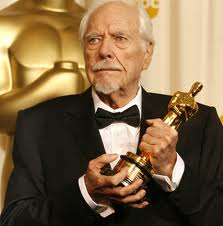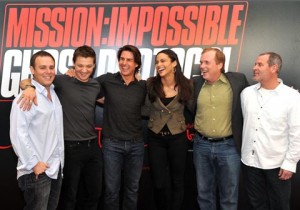Usually I don’t allow myself to have favorite artists? Do I prefer Bach to Beethoven? Or to Schubert? But I have to admit that Robert Altman is my favorite movie director.
This doesn’t mean I want to make a case that he is the “best” movie director ever. I don’t believe in such nonsense. I’d never say that Altman is “better” than Kurosawa, Keaton, Bergman, Carné, or many others I could name. But there’s something about Altman’s greatest films that makes me feel especially close to them, and that they do what I want to see more than anyone else’s.
Several years ago my local “art” movie house, Upstate Films in Rhinebeck, had a single showing of “Nashville.” I’ve seen that numerous times, but of course I hadn’t seen it in a theater since it was new. There is one glaring flaw in the film that gets on my nerves: the character of Opal, the British TV reporter played by Geraldine Chaplin. I don’t find her at all convincing, and although I know the stupidity of her reports is intended to make a point I think it’s too exaggerated to be plausible. (I hope.)
Aside from that, though, “Nashville” seems to me a magnificent statement of the state of American culture in the mid-70s (it was made in 1975), as seen through the microcosm of the country music scene in the city of Nashville. I’ve usually found that particular genre of music one of the few I don’t like, and I suspect Altman shared my opinion. As inventive as always, Altman hit upon the brilliant strategy of having the actors who play the roles of singers write their own songs and do their own singing. Some of them can sing, but only Keith Carradine could write a convincing song. (Ironically, it won an Oscar.) So most of the songs performed by these supposed icons of country music are pretty dumb, making in a subtle way a point that could easily have been overstated.
The interweaving of numerous stories in a single film is so much Altman’s invention that anything similar these days is immediately tagged as Altmanesque by film critics. “Nashville” was the first such Altman film to take on such an elaborate structure, although in a less complex construction it’s the basis of his first successful feature, “MASH” (Altman once stated that, although some of his films had lost money for the studios, they still owed him a debt of gratitude for “MASH” because it eventually earned a billion dollars for its studio through sales and TV royalties.) Other Altman classics like “Short Cuts” and “Gosford Park” have similarly complex stories.
“MASH” is only the first of Altman’s great films. Although “Nashville” might be my favorite of all of them, I might also love “3 Women” just as much. That magnificent, mysterious film, not one of his best known, is an exploration of the female psyche so convincing that it’s surprising to learn that Altman himself wrote it. Another of my many favorites, almost unknown today, is “Images,” a suspense story with a stunning shock ending which seems obviously a tribute to Alfred Hitchcock, an early mentor of Altman’s. (Before his successful movie career, Altman worked in television for a decade, directing episodes of “Alfred Hitchcock Presents,” “Combat,” “Bonanza,” and other series. In his mature career he went back to TV for several excellent projects, the greatest of which was “Tanner ‘88,” made for HBO.)
I’m lots fonder of “Popeye” than most critics seem to be. It’s a bizarre musical, with great songs by Harry Nilsson, and Robin Williams and Shelley Duvall are superb as Popeye and Olive Oyl. After that flopped, Altman had trouble getting funding for films for some years, and he worked mostly at making film versions of plays. Among those, “Secret Honor” is truly outstanding, with Philip Baker Hall as an amazing Richard Nixon. (“Beyond Therapy” is the only Altman film I’ve been unable to watch through. I find the Durang script unbearable. Durang didn’t like the film either.)
In the 1990s, Altman’s career had a renaissance. The post-1990 films are uneven, including such artistic flops as “Kansas City” (despite an amazing performance from Harry Belafonte”) and “Ready to Wear.” But they also include such masterpieces as “The Player,” “Short Cuts,” “Gosford Park” and even his last film, “A Prairie Home Companion,” based on the radio program and using some of its regulars (including host Garrison Keillor). When Altman died, he was working on a project called “Hands on a Hard Body,” based on the odd contests held by truck dealers in which the last person standing and still awake with both hands on a truck wins the truck. What a delight that would have been!
I haven’t been spending enough time with Robert Altman recently, but that’s going to change. While clearing out my collection of old VHS tapes I’ve found some Altman material I haven’t seen in years, including an interview done after “Vincent and Theo” was released and several TV projects including two one-act Harold Pinter plays (“The Dumb Waiter” and “The Room”). I’m going to copy all of the tapes to DVD and watch them in the process, and then I’m going start going through the features in a leisurely manner. It’ll probably take me two years or more. But what a trip that’s going to be!
Movie lovers like me often make the director of a film our main point of interest. I don’t allow myself such nonsense as having a “favorite” director. But I can tell you that I have seen every feature film Robert Altman ever directed. (even the TV movie “Nightmare in Chicago,” which has never been issued on commercial video), most of them more than once. The main reason I prefer Buster Keaton’s movies to Charlie Chaplin’s is that I find Keaton the superior director. Both of them were superb screen comics but the direction elements in Keaton’s films
are among the most inventive and satisfying of the entire silent film era.
Since Altman’s death, I’ve been paying attention to the directors of films I love, hoping for someone whose work I would enjoy as much as his. When I saw Michael Gondry’s “Eternal Sunshine of the Spotless Mind,” I thought I had found a new top genius. (Hearing him speak in New York once reinforced that impression. And I was already a great fan of his music videos.) But although I also loved Gondry’s “The Science of Sleep
,” I was deeply disappointed by “Be Kind, Rewind,” which he wrote. It was a marvelous conception carried out carelessly and without focus. And as much as I enjoyed “The Green Hornet
” (the departures from comic book orthodoxy not bothering me at all because I’ve never cared much about comic books), even Gondry’s imaginative work didn’t make it a great film. I was finally forced to recognize that Charlie Kaufman’s brilliant script had as much to do with the success of “Eternal Sunshine” as the direction.
Kaufman’s directing debut, “Synecdoche, New York,” struck me as a masterpiece. But he hasn’t had a chance to direct since, and if he goes on writing unconventional scripts like that one he may never.
One of my favorite films of recent years was the Pixar animated masterpiece “Ratatouille.” I have watched that one repeatedly with ever-increasing admiration for it, and for its director Brad Bird. Bird had also directed Pixar’s excellent “The Incredibles.
” Was he going to become a favorite director? Curiosity has just driven me to see Bird’s live action debut, the latest installment in the “Mission Impossible” franchise. I should admit that, although I do enjoy a good action movie sometimes, I would probably never have gone to see the fourth movie in this series if I hadn’t been curious about Bird’s work. And reviews were pretty good.
It’s a disaster. The “plot” is ridiculous and incoherent. The story makes no sense at all. There’s no apparent continuity between one scene and another except that good guys are chasing bad guys and trying to keep the world from being destroyed. Characters’ motivations are barely even referred to, and then so cursorily that you can’t really understand what bugs are up their respective asses. Perhaps if I’d been paying better attention by the end of the movie, I might have understood why Ethan, Tom Cruise’s character, finally reunited with his beloved wife, waves to her at a distance as she smiles at him and enters a building with someone else. But by then I didn’t care.
Did Bird’s contribution to this stupid mess make any difference? I don’t know. The various explosions and stunts were all pretty noisy and gaudy, but since there was no emotional involvement with the characters or the situation they didn’t mean anything to me. When Cruise was trying to climb up the side of the top stories of the tallest building in the world and one of his magic adhesion gloves failed, I hoped he would fall and put an end to the picture. And as the renegade atomic missile streaked through the stratosphere and the magic timer counted towards zero, I was hoping it would blow up and put us all out of our misery.
OK, any great artist is entitled to a flop here and there. Beethoven, after all, not only wrote “Wellington’s Victory,” he proclaimed it one of his best works. (I’m not alone in considering it one of the worst pieces of crap ever written by a great composer.) But “Mission Impossible: Ghost Protocol” left me strongly suspecting that “Ratatouille” was the product of a great creative team, among whom the director was merely a successful technician rather than a major motivator.
This experience actually does not help me answer the question posed by my title. Frankly, I can’t answer it. Of course, a great artist like Akira Kurosawa managed to infuse many films with his personal vision as well as his technical skills, and the films are his films. But if you think “Casablanca” is a great film, tell me who directed it. (I remember this one: Michael Curtiz.) And if you can do that, answer my favorite movie trivia question. In 1939, the year of “Gone With the Wind,” its director made one other film. Name it. I’m not even asking for the name of the director, since most people who do manage to answer the question will not know the director’s name. The film was “The Wizard of Oz,” and the director was Victor Fleming. Go figure.
Right now I’m keeping a hopeful eye on Sylvain Chomet, the French-Canadian animator now working in Scotland. His first film, “The Triplets of Belleville,” was one of the most satisfying movies of recent decades, one I’ve watched repeatedly and shared with numerous friends. His follow-up, “<The Illusionist
,” a tribute to Jacques Tati based on an unpublished script of his, was even better, a significant evidence of artistic growth and a more deeply emotional and involving experience. I can’t wait for his next movie—but I’ll have to. After the success of “The Triplets,” it took Chomet eight years to make “The Illusionist.”

